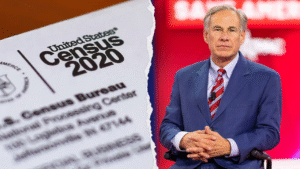Senate Republicans are considering the option of changing Senate rules after negotiations with Senate Democrats to approve President Donald Trump’s nominees hit a roadblock. The breakdown in negotiations occurred when President Trump accused Senate Minority Leader Chuck Schumer of “political extortion” and claimed that the demands made by the Democratic leader were unreasonable.
Lawmakers have left Washington without reaching an agreement to confirm numerous nominees who had bipartisan support at the committee level. This has sparked discussions about altering the confirmation process in the Senate.
Senate Majority Whip John Barrasso criticized Schumer and Senate Democrats for continuously blocking the president’s nominees through filibusters, with the exception of Secretary of State Marco Rubio. Barrasso emphasized the importance of having a president’s team in place and indicated that changes might be necessary in response to the Democrats’ behavior.
The possibility of invoking the nuclear option, which would allow for rules changes with a simple majority vote, is being considered by Republicans. While changing Senate rules typically requires 67 votes, the nuclear option could be utilized to bypass this requirement. Some GOP members believe that Schumer’s actions have forced them into this situation, necessitating a response.
Various options are being discussed, including shortening debate time for nominees, eliminating procedural votes for certain nominees, grouping civilian nominees together, and potentially reducing the number of nominees subject to the confirmation process.
Currently, there are over 1,200 positions that require Senate confirmation, with more than 140 nominees pending. Senate Republicans had hoped to confirm additional nominees before the recess, but the process was stalled due to the lack of an agreement with Democrats.
Senate Majority Leader John Thune expressed the need for change in the nomination process, highlighting the dysfunction that has been observed in recent months. Discussions on potential rule changes are expected to take place in the coming weeks.
The Senate recently advanced a series of spending bills, marking a rare bipartisan effort in the upper chamber. However, challenges remain in reconciling the differences between the Senate and House versions of the bills.
Schumer cautioned against Republicans pursuing rule changes without Democratic input, suggesting that such a move could jeopardize government funding negotiations. Despite the disagreements, Schumer emphasized the importance of working together on legislation for the benefit of the American people.
While tensions remain high following the breakdown in negotiations, both parties recognize the need to find common ground and move forward in a constructive manner. In a recent study published in a medical journal, researchers have found a potential link between a certain type of food and an increased risk of heart disease. The study, which was conducted over a period of five years and involved over 10,000 participants, found that those who consumed high amounts of processed foods were more likely to develop heart disease compared to those who did not.
Processed foods, which are typically high in sugar, salt, and unhealthy fats, have long been associated with a number of health issues, including obesity and diabetes. However, this study is one of the first to specifically link processed foods to an increased risk of heart disease.
The researchers believe that the high levels of additives and preservatives found in processed foods may play a role in damaging the heart and blood vessels over time. They recommend that individuals limit their intake of processed foods and opt for whole, unprocessed foods whenever possible to reduce their risk of heart disease.
While more research is needed to confirm these findings, the study serves as a reminder of the importance of a healthy diet in maintaining heart health. By making simple changes to their eating habits, individuals can help protect their hearts and reduce their risk of developing heart disease in the future.





